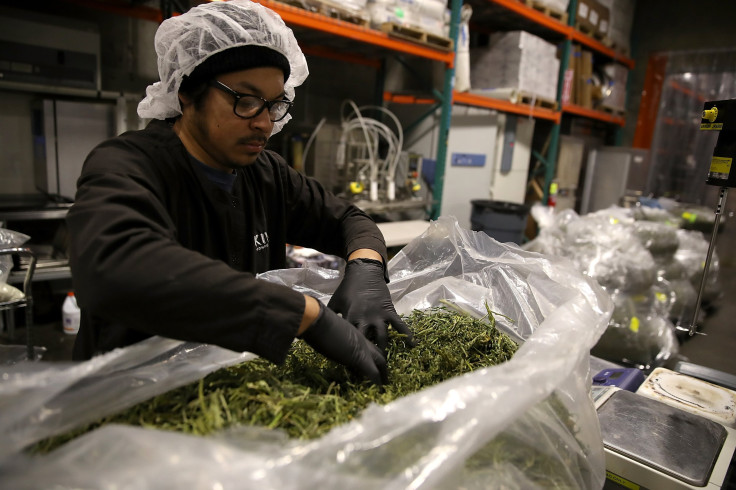Marijuana to Stay A Schedule I Drug, Federal Judge Denies Reclassification

On Monday, a federal judge of the U.S. District Court for the Southern District of New York dismissed a request to reclassify marijuana — currently a Schedule I drug, leaving the plaintiffs in a limbo after many states have legalized marijuana for medical and recreational purposes.
The plaintiffs — Marvin Washington, Dean Bartell, Alexis Bartell, Jose Belen, Sebastien Cotte, Jagger Cotte, along with the Cannabis Cultural Association Inc. — filed the petition challenging classification of marijuana as a Schedule I drug, hoping that it's reclassification would pay way for legalization of cannabis across the nation. They sued Attorney General Jeff Sessions, the Department of Justice and the Drug Enforcement Administration (DEA) in the federal court.
They petitioners claimed that the “current scheduling of marijuana violates due process because it lacks a rational basis.”
For decades, Marijuana has been under the Schedule I category of the Controlled Substances Act, the highest level of drug classification making it on par with dangerous drugs like heroin. The government has repeatedly rejected appeals for reclassification. The substances in this schedule have "a high potential for abuse," (2) "no currently accepted medical use in treatment in the United States," and (3) there is "a lack of accepted safety for use of the drug or other substance under medical supervision."
Deeming marijuana as a highly dangerous drug, the U.S. Congress proffered the power to reclassify the drug with the attorney general. The power to reclassify was also granted to the Drug Enforcement Agency (DEA), provided the attorney general signs off on the petition to reclassify the drug based on medical and scientific data provided by the Department of Health and Human Services (HHS). The data should be consistent with the argument for reclassification.
While dismissing the petition, which argued that there was no "rational basis" for the Congress to classify Marijuana under Schedule I, Judge Alkin K Hellerstein said, “By framing their claim in terms of the statutory factors outlined in Section 8 l 2(b) (1), plaintiffs' lawsuit is best understood as a collateral attack on the various administrative determinations not to reclassify marijuana into a different drug schedule.”
“As such, plaintiffs' claim is barred because plaintiffs failed to exhaust their administrative remedies,” he added.
The “exhaustion rule” generally implies the plaintiffs to go through all parties and exhaust all “administrative remedies” before moving to the federal courts, which the judge found was not followed in the case.
By approaching the federal court, the petitioners chose to avoid the same fate dealt to previous complaints that challenged the administration agency and lost in 2016, the judge said.
In 2016, a request to reclassify marijuana was denied by the DEA. In a letter to the petitioners, the agency said, “HHS concluded that marijuana has a high potential for abuse, has no accepted medical use in the United States, and lacks an acceptable level of safety for use even under medical supervision.”
The federal court judge said he agrees with the previous verdict given by Judge Wolford of the Western District of New York in the United States v. Green case where he said the petition did not challenge the DEA's decision “to conclude that there is no currently accepted medical use for marijuana" but the constitutional issue is "whether there is any conceivable basis to support the placement of marijuana on the most stringent schedule under the [Controlled Substance Act] CSA."
In a document stating the verdict, Hellerstein said, “Plaintiffs have failed to state a claim under any constitutional theory, all of plaintiffs' remaining claims are also dismissed.”
The judge concluded that the “defendants' motion to dismiss the complaint is granted. Plaintiffs have already amended their complaint once, and I find that further amendments would be futile.”
© Copyright IBTimes 2024. All rights reserved.





















